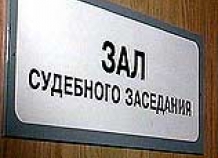Freedom from Torture
Civil Society Coalition against Torture and impunity in Tajikistan

A prosecutor in the trial of Mashraf Aliyev, a former officer from the police station in the Yovon district of Khatlon province, who is accused of torturing teen boy, asked a court in the Yovon district on December 2 to sentence Mashraf Aliyev to 12½ years in jail. A verdict is expected within the next few days.
We will recall that the Yovon district court on September 6, 2012 found Mashraf Aliyev guilty of torture and sentenced him to seven years in prison. Aliyev was convicted of torturing and ill-treating a 17-year-old boy on April 27, 2012.
This was the first time an official has been charged with the crime of torture since the Article on Torture in line with international legal standards was introduced into the Criminal Code of Tajikistan in March last year.
On April 27, the 17-year-old boy was detained on suspicion of theft by a police officer in Yovon, Khatlon province and questioned without a lawyer in the police duty office in Yovon. He was allegedly beaten in order to make him confess. On April 28, he was recalled to the police station where the beatings allegedly continued. The boy did not tell anyone about his ill-treatment but on April 29, he attempted suicide. He survived and was taken to hospital. A medical expertise was carried out on April 30, and a forensic examination was carried out on May 28 which found evidence that serious bodily injuries had been inflicted on him.
Mashraf Aliyev was also found guilty under Article 316 “exceeding official authority.” He was banned from working in the structures of the Ministry of Internal Affairs for a period of five years.
But on March 24, 2013, the verdict against Aliyev was recalled and his case was remitted for further examination, following the protest lodged by the Supreme Court head, who decided that the sentence passed on Aliyev was too soft.
During the further examination, Article 143’, Part 2, Point “c” was replaced by Article 143’, Part 3, Points “a” and “b”, while the charge of “exceeding official authority” (Article 316) remained without changes.